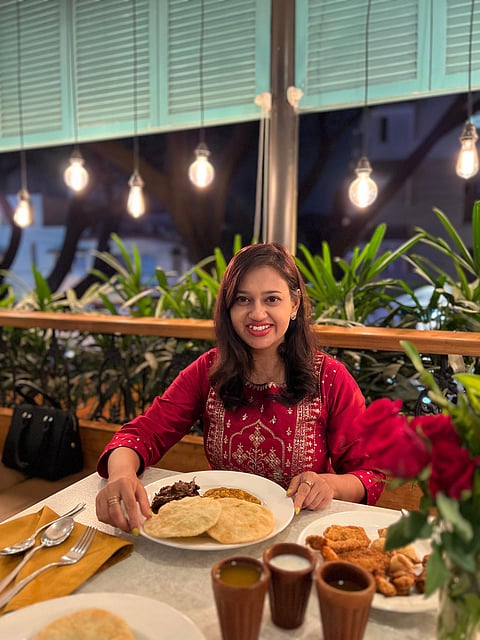

Bengalis are a festive bunch; despite Kolkata, the capital of West Bengal, being known as the city of joy, the joyous predisposition is central to Bengali cultures and subcultures throughout the world. While Durga Pujo is unanimously considered the biggest Bengali festival, Nabobarsho (New Year) or Poila Boishakh comes a close second. As the day celebrating the first day of the Bengali calendar, Nabobarsho enthuses the Bengali community towards family and food, and the promise of renewal.
Poila Boishakh, which literally translates to ‘the first day of the spring season’, is a day of tremendous significance in the Bengali community. Because the season has connotations of bountiful harvest and abundance, it is marked as the start of the Bengali fiscal calendar as well, with businesses inaugurating the ceremonial ‘haalkhata’ or record of transactions. While the festival’s history is disputed, most regard king Shashanka as the monarch to invent the Bengali calendar.
Regardless of history, as aforementioned, Nabobarsho’s cultural significance pervades Bengalis from all backgrounds. Debolina Ray, a product manager, anticipated her unavailability for this year’s Nabobarsho, and was more than keen to celebrate ahead. “I’m not in Bengaluru for Poila Boishakh this year, and I’m definitely missing the Bengali festive menus around the city. But for me, the day is just as much about reunions. I got a head start with a true-blue Bengali feast with friends and family last week,” she remarks. Software architect Priyanjana Roy, who looks forward to spending the festival with good company, reveals, “Family and food have always been the central theme for Poila Boishakh. This year it’s a little different as I am planning on spending it with my close friends, with my family being far away in Kolkata. We have planned a potluck with various Bengali dishes made by all of us.”
While festivals are gravitational centres for cultures to engage in revelry, they take on an added dimension for their diaspora communities. Most Bengalis based in Bengaluru have their origins in West Bengal, Assam, or even Bangladesh; Nabobarsho, beyond its glitter, also cannot help but fill them with nostalgia towards home. As IT professional Adrija Roy states, “This year, I’m celebrating Poila Boishakh by going home after what feels like ages, slipping into new clothes, and savouring the comforting taste of Maa’s cooking – surrounded by laughter, old memories, and familiar faces.” While communications consultant Srobona Das plans ‘a small gathering of probashee (diaspora) Bangalees’, Debolina misses the inimitable homely touch, saying, “At home, we usually have a family feast with cherished recipes that rarely make an appearance otherwise.” Priyanjana additionally reminisces about the stormy weather Bengal faces during this time of year, mentioning, “I miss my family, but I also miss the moody weather. Just before Poila Boishakh, the jhoro hawa (gusty wind) brings down the temperature, making Kolkata such a delight to enjoy the festive mood in!”